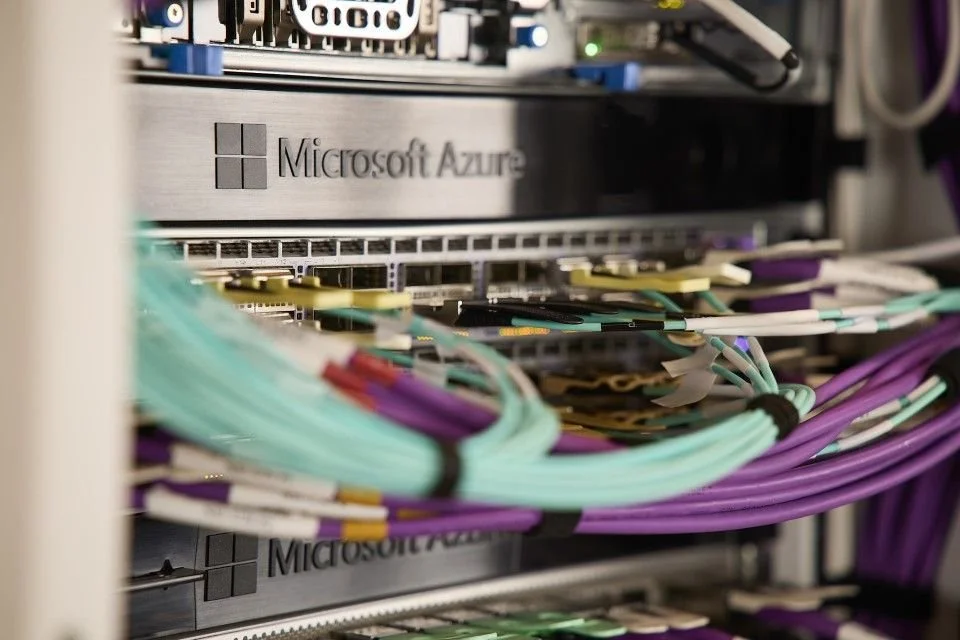JEGI Leonis’ Robert Koven explains how macroeconomic trends are reshaping the edtech investment space
Robert Koven, Co-CEO and Managing Director at JEGI Leonis
ETIH catches up with Robert Koven, Co-CEO and Managing Director at JEGI Leonis, a M&A advisory firm for the global technology, software, media, and business services industries, about current investment trends and how they are reshaping the edtech landscape.
Can you tell ETIH readers a bit about your role at JEGI Leonis?
Day to day, I spend a lot of my time kind of within what we'd kind of historically call the Ed Tech practice, or the global knowledge practice, depending on what point in time. Edtech has always been a big part of my role. The firm itself, in a given year, will probably do something around a third of its revenue coming out of the education or the Ed Tech arena globally.
What are the biggest trends you are seeing in edtech investment at the moment?
We're seeing budget tightening in a lot of spots, especially the US. Obviously there's an element of the DOGE world that has definitely trimmed budgets, in a number of spots. We're seeing that more pronouncedly in the higher education markets, where, at a federal level, the funding traditionally has been highest.
A lot of the K-12 education in the US is funded predominantly through state and local taxes. So while the federal agencies have clipped a few spots, we're not seeing that play through quite as pronouncedly in that market.
In corporate training, or continuing education, funding remains very robust, especially in certain applications. For example, the world of AI continues to drive a lot of folks into what we used to call boot camps years ago.
We’re also seeing that in a lot of areas that require the retraining of talent, or the upskilling of talent, due to changes to cybersecurity best practice. That corporate training environment has been quite robust.
We're not seeing too dissimilar trends in the UK.
Where are you seeing more investment?
Capital efficiencies are a key theme within the public education sector, where budgets are more challenged. In other sectors, there is a growing effort to figure out where they can save. So we're seeing solutions that help the school increase efficiency to enable them to focus more on their curriculum and teaching.
Others are really looking to use their assets more efficiently. For example, buses that can be more optimized with their routing, little things that can add up and that help you around the margins when these budgets are challenged.
Where we've traditionally seen a strong demand, such as in tutoring, automation platforms, digital credentialing, transcripts, virtual labs and experimental STEM, teacher support platforms, there's critical demand and need for those.
But are also seeing money flow into areas where there is a clear need to either reset or refresh a product that is maybe two generations back or is just not new anymore.
Do you think that investment into edtech is slowing at all?
The venture community at large has been challenged globally in terms of the capital flowing in, because less capital flowing out means those companies have been slower to reinvest in venture capital funds, and therefore they're slower to invest in new companies. So I think globally, there's been a slow kind of drought in the venture community.
But that doesn't mean it's completely disappeared, and if you look back at the trends five, six years ago, we're probably in line with a lot of that, and within that the distribution of investment flowing into education hasn't slowed or fallen as a percentage of venture capital. So I think the current situation for edtech investment is probably more reflective of the broader venture capital challenge than it is of any educational challenge.
How are companies managing increasing concerns around data privacy in edtech?
Europe's been a leader in data privacy. When you look at what's going on with GDPR and how long that's now been in place, most companies and organizations in Europe and the UK, are very comfortable dealing with that even though it was an expensive time learning that behavior.
When you start impacting the flow of hundreds of millions and billions of dollars of M&A deals, or you start having fines of those sizes, people pay attention.
In the US, California has rules closer to GDPR and it accounts for a large percentage of the GDP in the US. If you want to play in that market, you've got to be in California, right? By and large, most organizations that continue to scale in the US or internationally, are kind of having to thread through a kind of equivalency to GDPR. I think you'll see that push even further as people continue to see data breaches in education.
We've already seen that in a number places, such as Power School, which is the backbone of a tremendous amount of the education community in the US. As people watched that happen, and as states and countries take more of a pronounced stance on it, there will not be a way to skirt around that.
How is the current political situation changing investment into edtech?
Borders are getting tighter – and not just in the US. The challenge to immigration across the world isn't getting lessened. Institutions are looking for ways to continue to attract international students, particularly as historically they have been able to easily garner them. In the US right now, it's become hyper critical.
The traditional flow into a lot of the higher education organizations, even at the top institutions - just look at Harvard right now - are feeling that challenge in terms of getting a similar demographic profile as they have historically always had.
One of the tools to enable them to continue to do that, and keep their brand awareness very high internationally, is via that technology push, and I think that's going to continue for quite some time so that very elite higher education institutions can continue to find ways into countries such as China.
Where do you think we will see more investment and activity in the coming years?
We think that AI is going to be explosive and we're seeing it in every industry. We're even seeing it within our own industry. But you've got to be able to interact with AI and that re skilling is going to happen.
Cybersecurity is another key area, especially in heavily regulated industries, where we are seeing huge demand. Those companies continue to grow very aggressively and they need to be able to train talent quickly.
We are also still dealing with remote workforces in a lot of places which also requires training in soft skill development - skills like leadership, and mentorship - and particularly how to do that without an office culture. Everybody knows that challenge. Some people will claim that going back to the office will solve that, but there are a lot of technologies being developed currently that really address that for those with a distributed, remote workforce.
Governments are becoming more interested in tech and treating it as infrastructure. Technology is useless if you don't have the underlying training and education, so in order to build and develop that a lot of countries are looking at it in the long term, knowing they need to be investing and creating a funding cycle. Yes, it's highly political and it's regionally inconsistent, but you've got to take a little bit of a risk if you're going to ever grow your economy.
I think we're actually seeing that happen faster in Europe than you are in the US right now, because the US is getting a little bit more leeway around its budgetary imbalances, and whereas in Europe and the UK, there's a little bit more requirement by the markets to stay relatively balanced. The only way to do that, not penalize the economy, is to grow long term - which of course requires education.

























